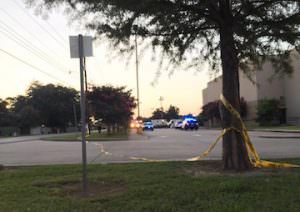What Congress Should Do About Gun Control
Recent mass shootings have rightly sparked a national debate about gun control. Unfortunately, like so many political debates, this one has been loud, divisive and lacking in substantive analysis or reasoned compromise.Recent shootings have rightly sparked a debate about gun control. Unfortunately, it's been loud, divisive and lacking in substantive analysis or reasoned compromise.
The recent mass shootings in Newtown, Conn., and Aurora, Colo., have rightly sparked a national debate about gun control. Unfortunately, like so many political debates in 21st century America, this one has been loud, divisive and largely lacking in substantive analysis or reasoned compromise.
Jacquielynn Floyd, writing for the Dallas News, recently called for policy wonks to enter the debate armed with hard data. Slate’s William Saletan wrote that reformers should “focus on keeping [guns] away from dangerous people.” Both of those are excellent suggestions.
A good starting place for further discussion is a 1998 study published in the esteemed Journal of the American Medical Association titled “Prior Misdemeanor Convictions as a Risk Factor for Later Violent and Firearm-Related Criminal Activity Among Authorized Purchasers of Handguns.” The basic finding was that “[h]andgun purchasers with at least 1 prior misdemeanor conviction were more than 7 times as likely as those with no prior criminal history to be charged with a new offense after [a] handgun purchase.”
Even more alarming, just one pre-purchase misdemeanor conviction increased by a factor of five the risk of a post-purchase criminal charge “involving firearms or violence.”
Think about that grim statistic, and then consider the fact that federal law already bans all convicted felons from owning any firearm, regardless of the nature of the felony. The law also bars gun ownership by individuals convicted of misdemeanor domestic violence.
If the U.S. is serious about reducing gun violence and homicides, it seems logical that Congress should focus on new federal legislation that extends that prohibition on firearm ownership to a much larger subsection of misdemeanor offenders (e.g., violent criminals). By expanding the ban, we could limit access to firearms by people who have already demonstrated a willingness to use violence, and who are statistically more likely to commit violent acts in the future.
If I were crafting this new law, I would not extend the prohibition to all individuals convicted of misdemeanors. That seems overly inclusive, and perhaps even unconstitutional. Instead, I would limit the ban to people convicted of using a weapon during a violent crime, those who were charged with a violent felony but pleaded down to a misdemeanor and perhaps those who illegally carried or handled a firearm. I would also consider putting a time frame on the prohibition — for example if someone has avoided any new convictions for, say, five or 10 years, he or she would again be allowed to purchase a firearm.
This expanded law should also apply to juvenile offenders, because it would be senseless to give free passes to violent 16- or 17-year-olds and then allow them to buy a gun as soon as they turn 18.
Finally, I would encourage state legislatures to pass laws that would count three misdemeanor convictions, for the purposes of federal gun restrictions, as a state felony — thus barring repeat criminal offenders from gun ownership.
By restricting the reach of this new law to those convicted of a crime, we would preserve the traditional American concept of checks and balances while keeping most of the power centered on the people — in theory, a jury of 12 peers. We would also avoid alternative gun ban proposals that require the creation of slippery definitions of mental health and legal sanity (i.e., “only sane people should be allowed to own guns”).
To give this proposal a chance to succeed, Congress should simultaneously increase the penalties for illegally transferring a firearm to another person, especially if the recipient cannot legally own a gun. While revising this law, Congress should also review the evidentiary requirements and elements. Right now it is terribly difficult to prove that someone had the intent to illegally transfer a firearm, and this loophole has been exploited by many evil people. There should be no excuse or leniency for people who willfully look the other way when they pass guns to criminals.
In addition, we should consider more stringent penalties for people who recklessly allow family members and acquaintances to use their firearms to commit crimes. I don’t know exactly what this new law would entail, but it could be based on the notion of criminal recklessness; in other words, if you know of a risk, and you willfully ignore that risk, you could be held criminally liable.
To head off one criticism from the anti-gun crowd, I will freely admit that these proposed legislative changes would do little to prevent determined individuals from buying a firearm and committing a rampage. Those people who have managed to avoid detection by the criminal justice system might be only slowed down, not stopped.
But gun control debate should not focus on preventing sensational and tragic events like Sandy Hook. Such events are horrible, but they are also rare and hard to predict. Rather, we should seek to reduce the more than 8,000 annual gun homicides in the United States, most of which have nothing to do with headline grabbing massacres.
And for the pro-gun crowd, let’s remember that firearm owners are often the same people who like to talk about personal responsibility and individual rights — and perhaps this sentiment is 100 percent correct. From now on, if you want to own a gun in the United States, it seems reasonable that you should demonstrate that you can go at least five or 10 years without committing a violent or weapon-related crime.
We should shy away from emotional calls to ban all “assault weapons” or to confiscate guns in some foolish door-to-door operation. Instead, I call on our leaders to craft careful, limited, nationwide laws that will restrict gun access for those most likely to abuse the privilege.
In the meantime, I hope some policy wonks update that 1998 study.
Your support matters…Independent journalism is under threat and overshadowed by heavily funded mainstream media.
You can help level the playing field. Become a member.
Your tax-deductible contribution keeps us digging beneath the headlines to give you thought-provoking, investigative reporting and analysis that unearths what's really happening- without compromise.
Give today to support our courageous, independent journalists.



You need to be a supporter to comment.
There are currently no responses to this article.
Be the first to respond.